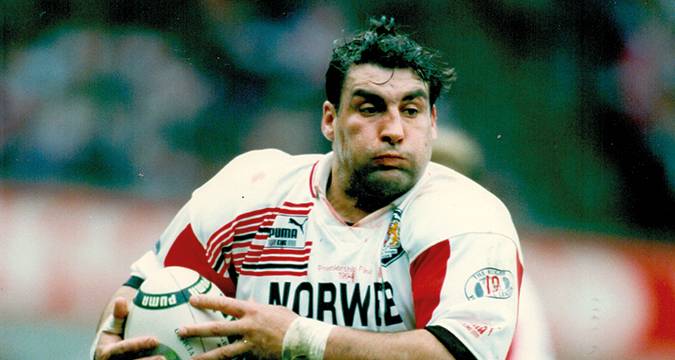 HAVING impressed at Hunslet and Bradford Northern, Kelvin Skerrett earned a Great Britain call-up in 1989 and toured with the Lions in 1990. He signed for Wigan after that tour and went on to establish a reputation with home fans as one of their all-time great forwards and with away fans as a pantomime villain. He played for Wales in 1995 and signe
HAVING impressed at Hunslet and Bradford Northern, Kelvin Skerrett earned a Great Britain call-up in 1989 and toured with the Lions in 1990. He signed for Wigan after that tour and went on to establish a reputation with home fans as one of their all-time great forwards and with away fans as a pantomime villain. He played for Wales in 1995 and signe Rugby League Heroes: Kelvin Skerrett (Part Two)
 HAVING impressed at Hunslet and Bradford Northern, Kelvin Skerrett earned a Great Britain call-up in 1989 and toured with the Lions in 1990. He signed for Wigan after that tour and went on to establish a reputation with home fans as one of their all-time great forwards and with away fans as a pantomime villain. He played for Wales in 1995 and signe
HAVING impressed at Hunslet and Bradford Northern, Kelvin Skerrett earned a Great Britain call-up in 1989 and toured with the Lions in 1990. He signed for Wigan after that tour and went on to establish a reputation with home fans as one of their all-time great forwards and with away fans as a pantomime villain. He played for Wales in 1995 and signe 